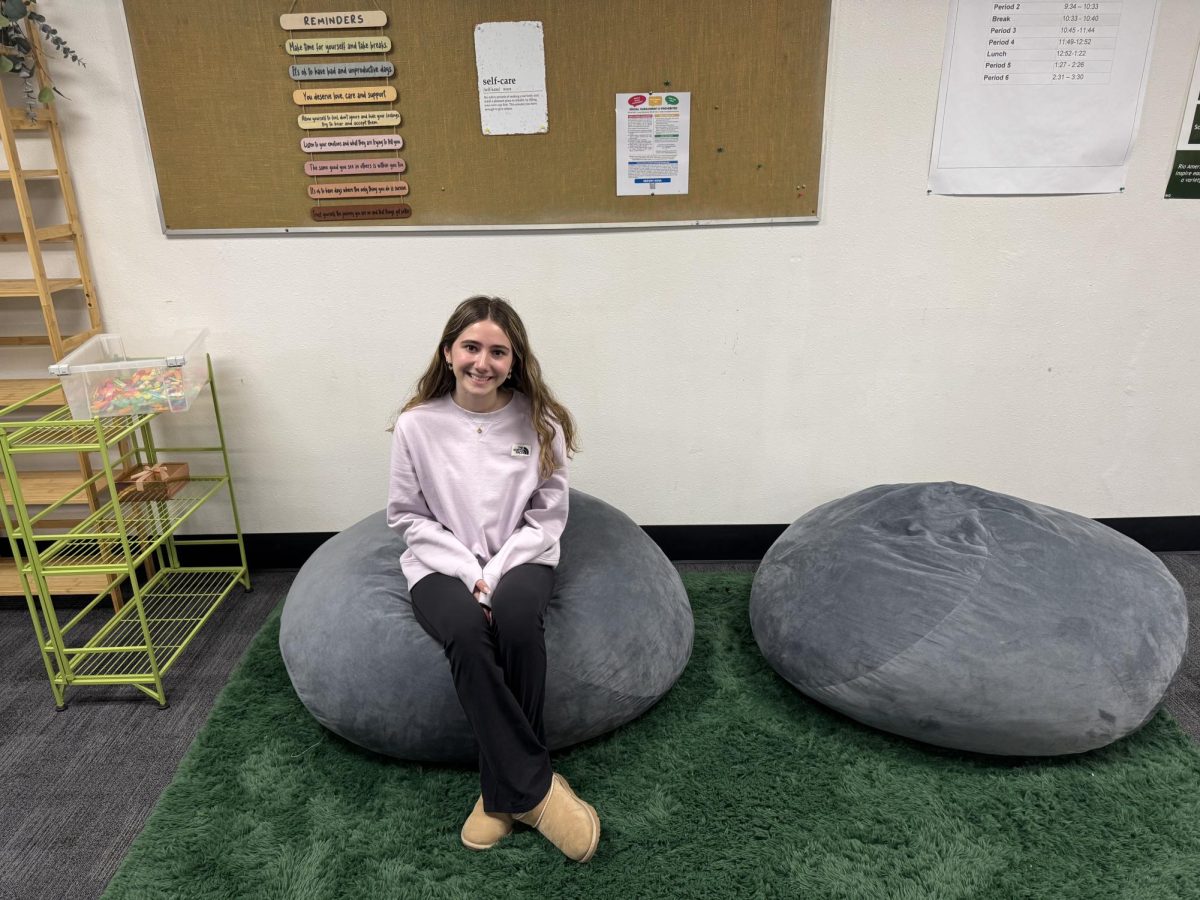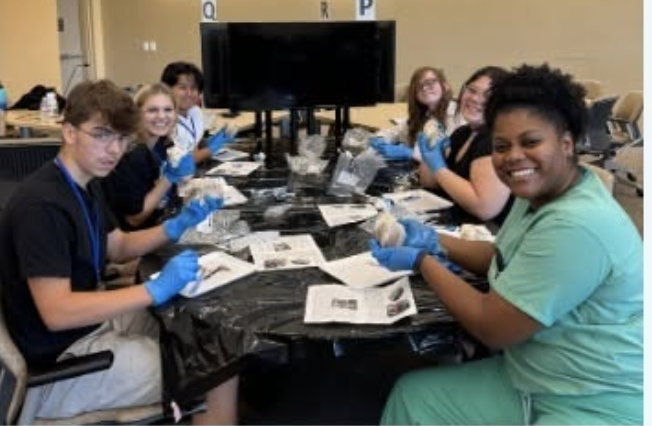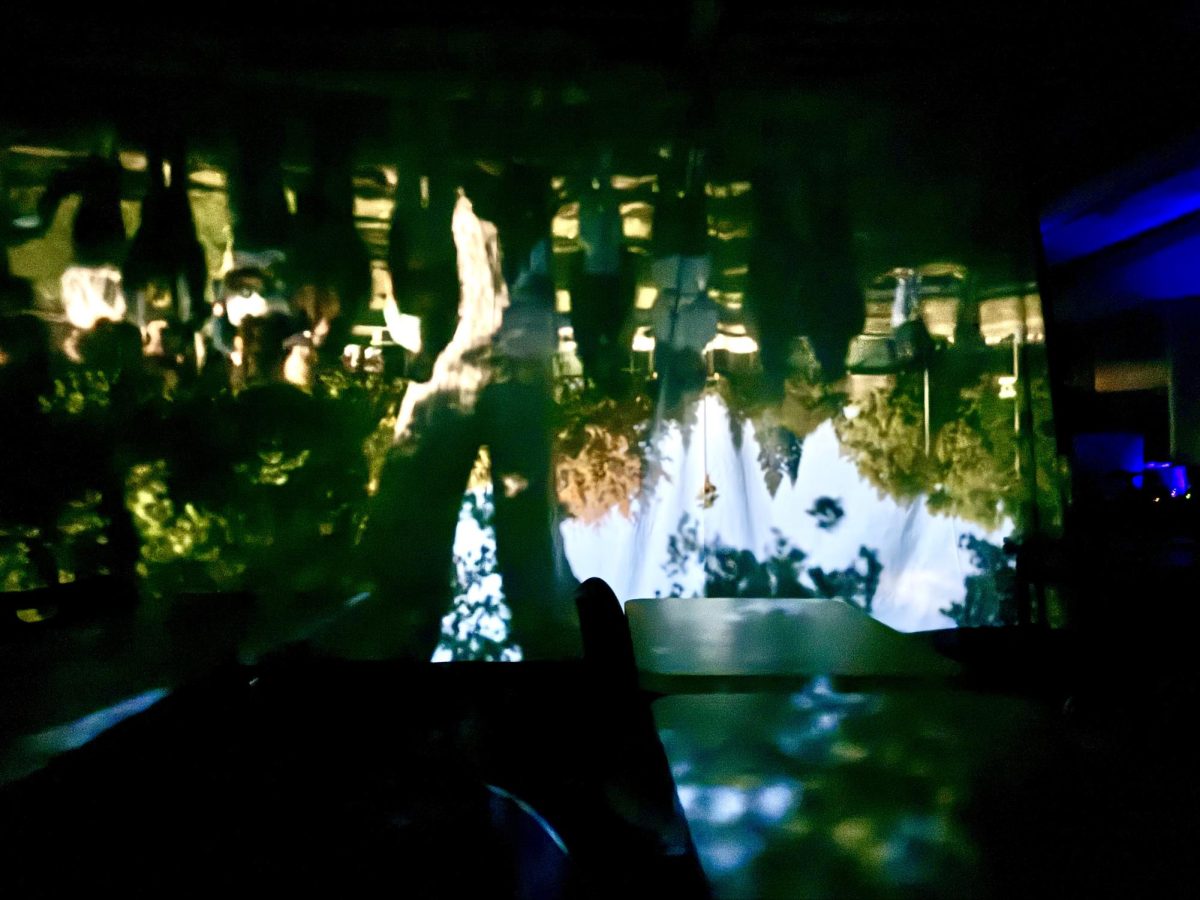Screen Time Harms Eyes

From iPhones, to laptops, to e-readers, eyes are constantly being strained.
Students are working on computers for hours at a time whether it’s researching for a report, writing an essay, or creating a presentation. Our eyes have to work overtime because of school’s demands.
When you’re looking at a computer, your eyes have to constantly focus and refocus. Reading from side to side, looking down then back up or clicking through images all cause your eyes to react so your brain can process what it’s looking at. Unlike a book or paper, screens have the added glare, flicker and contrast contributing to the strain on the eye muscle.
The blue light emitted through the backlight of screens can cause irritation and possible long-term damage to the retina. Blue light passes through the cornea and lens before hitting the retina which can cause premature aging. It also diminishes a sleep hormone called melatonin which can disrupt sleep patterns causing dryness and further harm.
No only does school cause so much stress that students can’t sleep due to anxiety or an overwhelming amount of homework, but now their brain’s chemical balance is off and won’t let them sleep either.
Blinking protects the eye from dryness, but according to a study conducted by CBS, blinking can be reduced to half when staring at a screen. When eyes are left open for too long, tears evaporate quickly.
After a summer spent looking at my computer and my phone for countless hours, I was told I’d need glasses. I was also told to use eye drops to combat dryness.
My doctors said too much competing light in the background or a bright white background on the screen can cause damage too versus a cool gray tone background, so I changed my Twitter to night mode and turned down the brightness on my computer.
Myopia, also known as nearsightedness, has increased in recent generations, now affecting around 34 million people, and The National Eye Institute projected this number to reach 40 million by 2030.
Reports show that Generation X and millennials, our generation, will feel the worst effects screens have on eyes. Kids are also at risk. Daylight is needed to develop eyes and strengthen them, and being indoors looking at a tablet or phone damages them at a young age.
The world of technology has been embraced by schools, companies and people of all ages, but with it comes severe consequences. Bad eyesight is no longer just a product of bad genes or reading too much. Computers are essential for all school projects and everyone has a smartphone, but soon everyone will have damaged eyes.







































